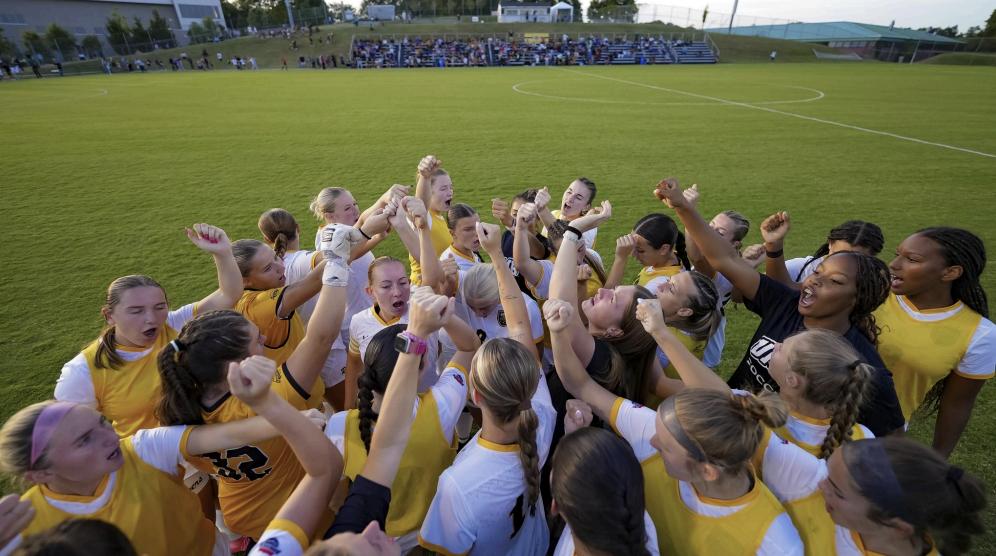After over a year of operating completely online, many University of Maryland, Baltimore County students are used to the routine of logging onto their computer to attend their classes and spending their days communicating over Webex, email and Blackboard. Some students may look forward to their daily on-campus habits of picking up Starbucks before class and eating in the Commons with their friends. But, for the transfer students who never set foot on Academic Row or Hilltop Drive as a result of the COVID-19 pandemic closing campus, the idea of the drinking Starbucks during lecture or choosing a place to eat in the Commons seems like a distant dream.
Senior media and communications studies major Hope Timoll transferred to UMBC over during the summer of 2020. She said that she has missed out on opportunities to bond with her professors and other classmates because of online classes.
“When I transferred to UMBC, I also transferred into this major, so I had to work harder at creating professional relationships,” said Timoll. “Creating that academic professional-student connection is challenging enough face-to-face, but it is much harder in an online environment.”
She explained that online platforms like Zoom and WebEx do not provide the same intimate connections as in-person conversations would. Timoll feels the extra work that she put in to bond with her professors has not produced the same relationships it would have had she spoken to them in person.
Remi Sijuwade, also a senior media and communications studies major, also said it was difficult to get close to her professors over Webex and Blackboard. She also said her opportunities to build professional connections and find internships was hindered by online school.
“I feel like I’d be further along on finding an internship and I’d have more clarity on what UMBC expects from me [if I had gotten to be on campus],” Sijuwade explained.
She went on to say that she does not feel like she has gotten the “UMBC experience” or the community feel for campus despite this being her second semester. Many events students look forward to in a normal year, like Homecoming or Quad Mania, are completely foreign to Sijuwade and other transfer students. Even smaller things unique to UMBC, like the tables selling jewelry in the Commons Breezeway or clubs decorating the fields on the way to the Interdisciplinary Life Sciences Building, are unimaginable to many transfer students.
“[My time at UMBC has] been boring, honestly,” Sijuwade admitted.
UMBC Transfer Student Success Coordinator and Off-Campus Student Services Provider Chloe Terrell stated that one of the major changes in the transfer process has been student orientation. Previously, transfer students and incoming freshmen at UMBC would visit campus prior to the start of classes for orientation, but now everything must be done online via modules.
“Instead of getting to go onto campus, [students] are kind of just clicking through different modules on their own time, which is challenging because they’re not getting that connection from us. And then also their advising appointments are online now to pick classes, so that’s been different,” explained Terrell.
All of the on-campus commodities offered by UMBC, like the Retriever Activities Center or the library, are currently inaccessible to students. Transfer students who enrolled at UMBC during the pandemic have never experienced these facilities or the activities they offer. For Timoll and Sijuwade, the lack of campus access has contributed to feelings of separation from the full scope of what UMBC has to offer.
“When we were on campus, it was really easy for commuters and transfer students to kind of just make friends by sitting in the [commuter] lounge and studying,” said Terrell. “Without those in place, it’s kind of hard for them to form those study groups or friendships.”
UMBC Director of First-Year and Transfer Academic Programs in the Division of Undergraduate Academic Affairs Laila Shishineh said that transfer students are also feeling less motivated to get involved in events and activities outside of class because they do not feel as connected to the university.
“We know there’s a lot of value added if [transfer students] take advantage of an academic transition course or if they get connected to clubs and groups and applied learning and research and all that stuff. Getting them to do that is tricky, even without a pandemic. It’s harder with a pandemic because it’s easier for them to just do classes and check out.”
Shishineh believes transfer students during COVID are staying more connected to the communities they formed prior to attending UMBC instead of forming new connections after transferring.
“I do think the longer we are doing this, the more people are finding ways to connect,” Shishineh added.
Sijuwade disagrees, saying that online classes and group chats are not enough for her to successfully form new relationships.
“I feel like I don’t have a community at UMBC,” Sijuwade concluded.
With Maryland Governor Larry Hogan announcing that vaccines will be available to for everyone 18 years and older as of Apr. 27, Sijuwade and Timoll hope that they will get to experience being on campus soon.
